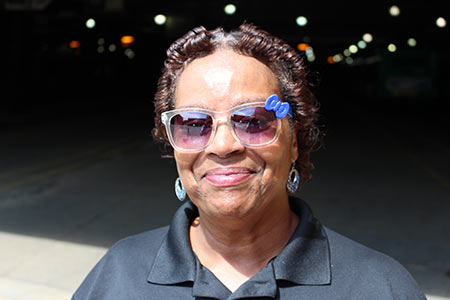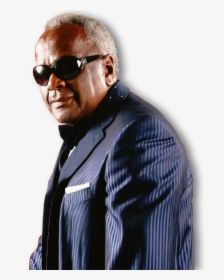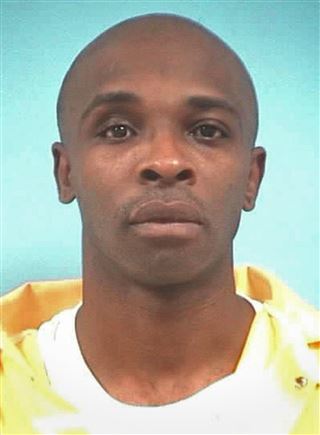Willie Nash: A Cell Phone, 12 Years, And The Unsettling Face Of Justice
An Unbelievable Sentence: The Case of Willie Nash
Imagine being sentenced to 12 years in prison for possessing a cell phone. For most, this sounds like a plot from a dystopian novel, not a reality in a modern justice system. Yet, this is precisely the fate that befell Willie Nash, a 39-year-old African American man and a married father of three, whose story has become a stark illustration of the deep-seated issues plaguing the American legal system, particularly concerning racial disparities and disproportionate sentencing.
Willie Nash's ordeal began when he was held in a Mississippi county jail on a misdemeanor charge. It was during this time that a seemingly innocuous act – asking a guard to charge his cellphone – would set in motion a chain of events leading to a sentence that many have decried as "obviously harsh" and a profound miscarriage of justice.
The Incident: A Misdemeanor, a Phone, and a Glaring Oversight
The circumstances surrounding Nash's cell phone possession are crucial to understanding the controversy. When Willie Nash was booked into the Mississippi corrections facility, officers reportedly failed to confiscate his phone. This oversight, whether intentional or accidental, meant that the phone remained in his possession. Later, while incarcerated on his misdemeanor charge, Nash simply asked a jail officer to charge his mobile phone. It was this request that led to the discovery of the device.
- Allure Chicago
- Omaha Senior Photographers
- Chocolate Covered Strawberries San Francisco
- Male Models Fitness
- Maddie Mcdonald
For this, he was subsequently charged with possession of a cell phone in a correctional facility. Adding another layer of complexity to the case, Nash himself claimed he did not know that possessing a cell phone was illegal in Mississippi jails. While ignorance of the law is generally not a defense, the context of how the phone remained with him and his subsequent request for it to be charged paints a picture of a man perhaps unaware of the severe repercussions of his actions, rather than one intentionally defying regulations.
The Shocking Verdict and Unwavering Sentence
Despite the circumstances, a jury found Willie Nash guilty of possession of a cell phone in a correctional facility. What followed was a sentence that sent shockwaves through legal circles and human rights advocacy groups: a 12-year prison sentence. This extraordinary length for a non-violent offense, especially one involving a device that officers initially failed to confiscate, immediately raised eyebrows.
Nash did not appeal the jury’s verdict itself. Instead, he chose to challenge only his sentence – twelve years behind bars. His legal team and supporters argued that the punishment simply did not fit the crime. The severity of the sentence, in their view, was disproportionate and unjust, especially when compared to similar offenses or even more serious crimes committed by individuals of different racial backgrounds.
A Battle for Justice: Legal Challenges and Public Outcry
The fight for Willie Nash’s freedom quickly escalated. The Southern Poverty Law Center (SPLC), a prominent civil rights organization, became involved, advocating fiercely on his behalf. Their involvement underscored the belief that Nash's case was not just an isolated incident but indicative of broader systemic issues.
The Mississippi Supreme Court's Stance
The legal battle reached the highest court in the state. The Mississippi Supreme Court initially affirmed Nash’s sentence, upholding the 12-year term. This decision was met with widespread disappointment and renewed calls for justice. Despite the public outcry and the perceived harshness of the sentence, the court remained steadfast. On a later date, the Mississippi Supreme Court said it would not reconsider its earlier decision to uphold the sentence of Willie Nash.
Interestingly, even the Mississippi Supreme Court itself acknowledged the severity of the punishment. They called Willie Nash’s sentence “obviously harsh” but ultimately ruled that it was permissible under state law. This paradoxical stance – recognizing the harshness while upholding its legality – highlights a significant tension within the justice system: the letter of the law versus the spirit of justice and fairness.
Accusations of Racial Injustice
The case quickly became a flashpoint for discussions on racial bias in the American legal system. Judges involved in the case have been accused of racial injustice for handing an African-American man a 12-year sentence after he merely asked a jail officer to charge his mobile phone. Critics pointed to the glaring disparity in sentencing, arguing that a white individual committing a similar offense might not face such a draconian punishment.
As the provided data suggests, "If you needed any more evidence that black people are more harshly punished by the legal system than their white counterparts, look no further than the case of a 39-year-old." Willie Nash’s case, therefore, transcended the individual incident, becoming a symbol of a larger, more troubling pattern.
Disproportionate Justice: A Systemic Issue Exposed
Willie Nash's 12-year sentence for a cell phone, especially one he allegedly didn't know was illegal to possess in jail and which was not confiscated upon booking, serves as a powerful testament to the systemic flaws within the American justice system. This case brings to the forefront several critical questions:
- Disproportionate Sentencing: Is a 12-year sentence truly proportionate to the crime of possessing a cell phone in jail, particularly when there was an initial failure by officers to confiscate it?
- Racial Bias: Does Nash's identity as an African American man play a role in the severity of his punishment? Numerous studies attest that American justice treats individuals differently based on their race, with Black individuals often receiving harsher sentences for similar crimes compared to their white counterparts.
- Purpose of Incarceration: What is the goal of such a lengthy sentence? Is it rehabilitation, deterrence, or simply punishment? And does such a sentence serve any of these purposes effectively, or does it merely perpetuate a cycle of incarceration that disproportionately affects minority communities?
- Awareness of Law: While not an excuse, the claim that Nash was unaware of the specific illegality highlights a potential gap in communication or education within correctional facilities regarding contraband rules.
The ripple effect of such a sentence extends far beyond Willie Nash himself. It impacts his wife and three children, who will endure years without their father. It erodes public trust in the fairness and impartiality of the justice system. And it sends a chilling message about the potential for minor infractions to lead to devastating, life-altering consequences, especially for those already marginalized.
Conclusion: A Call for Scrutiny and Reform
The case of Willie Nash stands as a stark and unsettling reminder of the profound challenges facing the American justice system. A 39-year-old father of three is facing 12 years behind bars for having a cell phone in jail, an item officers failed to confiscate and an act he allegedly didn't know was illegal. Despite the Mississippi Supreme Court acknowledging the sentence as "obviously harsh," they upheld it, leaving many to question the very definition of justice.
Willie Nash's story is more than just an individual's plight; it is a critical lens through which we must examine the systemic issues of disproportionate sentencing and racial bias that continue to plague our legal institutions. It underscores the urgent need for comprehensive reform, greater judicial discretion tempered with empathy, and a commitment to ensuring that justice is truly blind and equitable for all, regardless of their background or the color of their skin.
Final Summary: Willie Nash, a 39-year-old African American father, was sentenced to a 12-year prison term in Mississippi for possessing a cell phone in jail, a device officers initially failed to confiscate and an act he claimed he didn't know was illegal. Despite the Mississippi Supreme Court calling his sentence "obviously harsh," they upheld it, refusing reconsideration. This case has drawn widespread criticism, with judges accused of racial injustice, and is frequently cited by civil rights groups like the SPLC as a clear example of how Black individuals face disproportionately harsher punishments within the American legal system compared to their white counterparts.

Ride MCTS | About MCTS | Willie Nash

Willie Nash" Class="img Responsive Owl First Image - Gentleman, HD Png

Mississippi Man Gets 12 Years In Prison For Having Cell Phone - Essence